Very interesting reconstruction of the Forum in Pompeii. It was a 38 x
This document presents the results of an investigation into the reconstruction of a large market building on the Pompeii Forum following and earthquake in 62 AD, seventeen years prior to the eruption of Mt. Vesuvius that buried the city. The work is part of the Pompeii Forum Project, a multi-disciplinary study of the development of the Forum as.

Pompeii Forum reconstruction 2 a photo on Flickriver
The exhumed Pompeii has taught modern humanity a great deal about first-century urban planning as practiced by the Roman Empire. But it's one thing to walk the paths Pompeiians walked, and quite another to see the built environment that they must have seen.
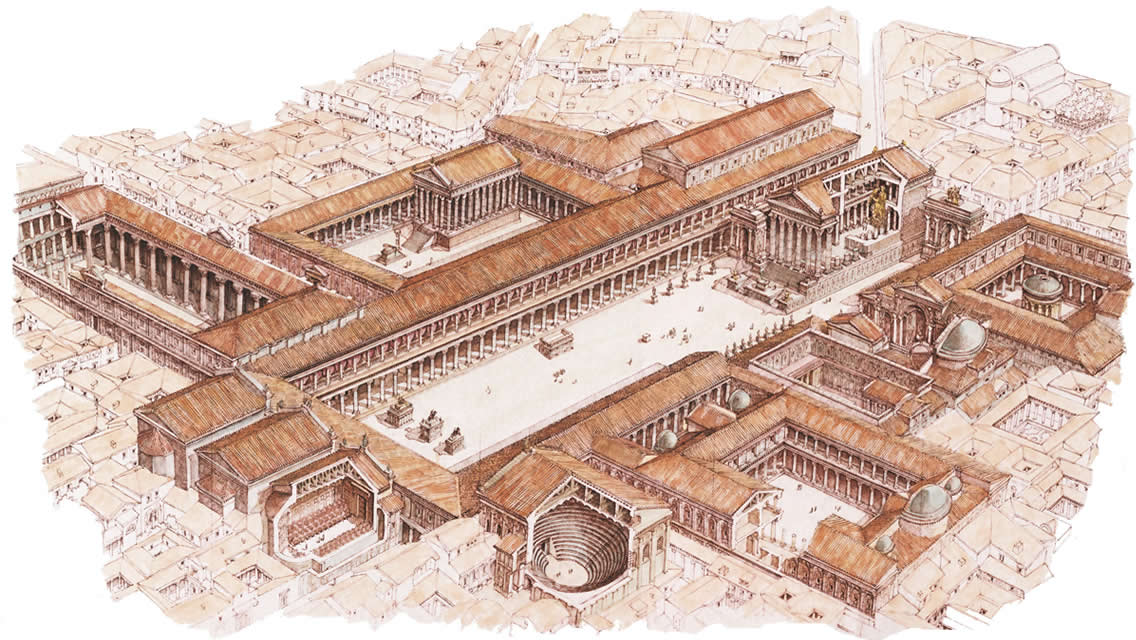
The Forum Pompeii
An in-depth repository for the ongoing study of the uban center of this ancient Roman city, the Forum in Pompeii. View the a map of the forum, 3-d reconstructions of the buildings with overlays and links to photos of the extant remains. Self-described as a "collaborative research venture" it is an up-to-date and evolving site. The goals are to provide the first systematic documentation of the.

pompeii ancient mystery shocking vesuvius ancientgreekarchitecture
The Civil Forum is the core of daily life of the city and is the focal point of all the main public buildings for city administration and justice, business management, and trade activities such as markets, as well as the main places of citizen worship.
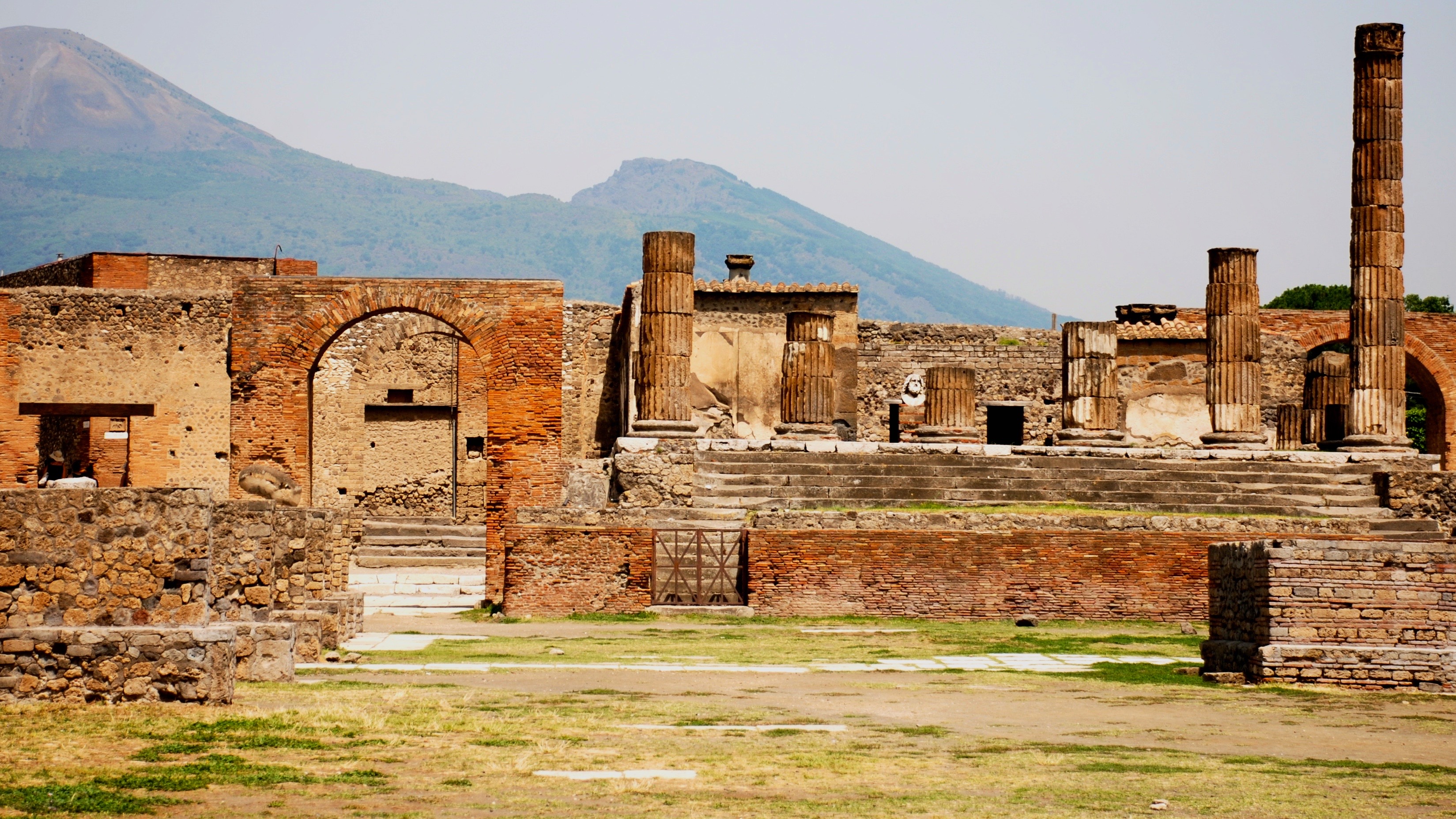
The Forum at Pompeii Christopher P. Long
This document presents the results of an investigation into the reconstruction of a large market building on the Pompeii Forum following and earthquake in 62 AD, seventeen years prior to the eruption of Mt. Vesuvius that buried the city.

Pompeii reconstruction of Ancient Roman city using YouTube
After The present study, thus, attempts to add detailing the changes caused by the reconstruction, another dimension to the understanding of the especially in the areas of access and drainage, the forum at Pompeii. his work seeks to complement discussion shifts to how these changes demonstrate the findings of the Pompeii Forum Project by that the planning for the infrastructure of the new.

Reconstruction of the Basilica, Pompeii. Ancient Roman Art Chronology
Introduction Situated at the heart of the ancient city of Pompeii, the Forum stands as a testament to the grandeur and sophistication of Roman urban design. Serving as the civic, commercial, and political hub, the Forum of Pompeii offers a fascinating glimpse into the daily life of its inhabitants over two millennia ago.

Temple Of Apollo in Pompeii reconstruction Pompeii, Pompeii and
Digitizing the Pompeii's Forum. Gabriele Guidi. The article reports about a multi-resolution and multi-sensor approach developed for the accurate and detailed reality-based 3D modeling of the entire Roman Forum in Pompei, Italy. The Forum, approximately 150 x 80 m, contains more than 350 finds spread all over the area as well as larger mural.
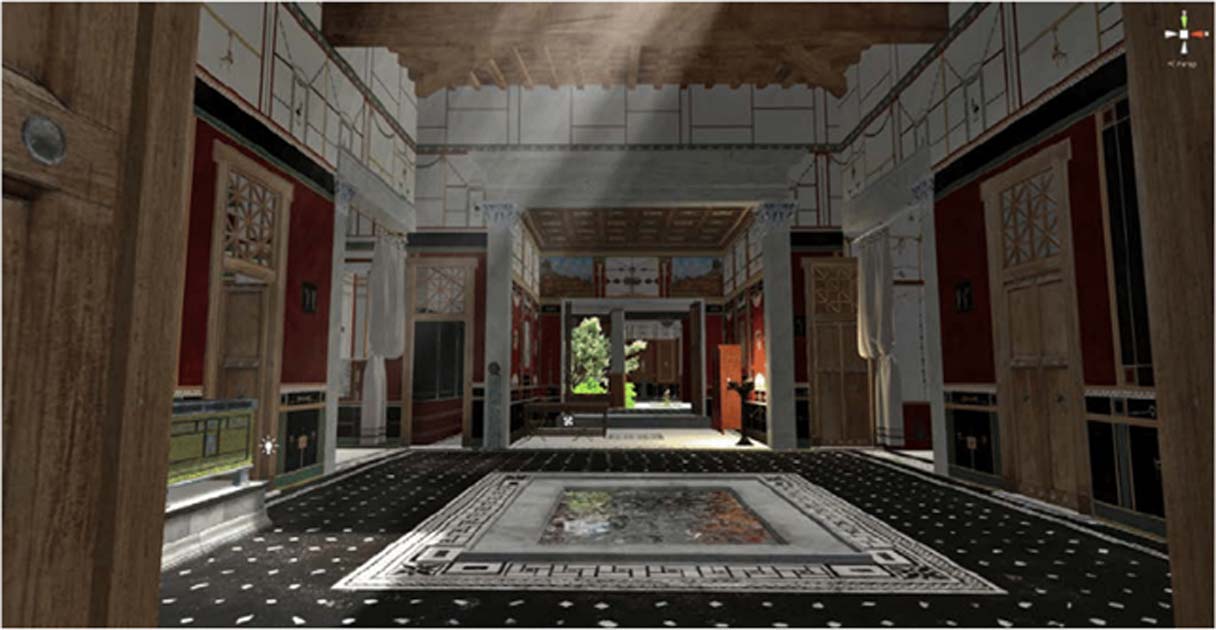
Magnificent 3D Reconstruction of Pompeii Home Sheds Light on Life in
17 April 2020 Reconstruction of the Pompeii Forum Very interesting reconstruction of the Forum in Pompeii. It was a 38 x 157-meter square surrounded by a colonnade. Some porticos were rebuilt in later times by adding a second floor of columns. Next to the forum were public and cult buildings as well as market halls.

"Pompeii Forum II, 79AD" by Al Bourassa Redbubble
Recent fieldwork and study by the Pompeii Forum Project allows us to expand and refine our understanding of the urbanistic development in the area of the Pompeii Forum, in the context of our previous interpretation of the overall state of Pompeii Forum studies (AJA 117 [2013] 461-92). In 2001, we conducted four excavations in the forum area,
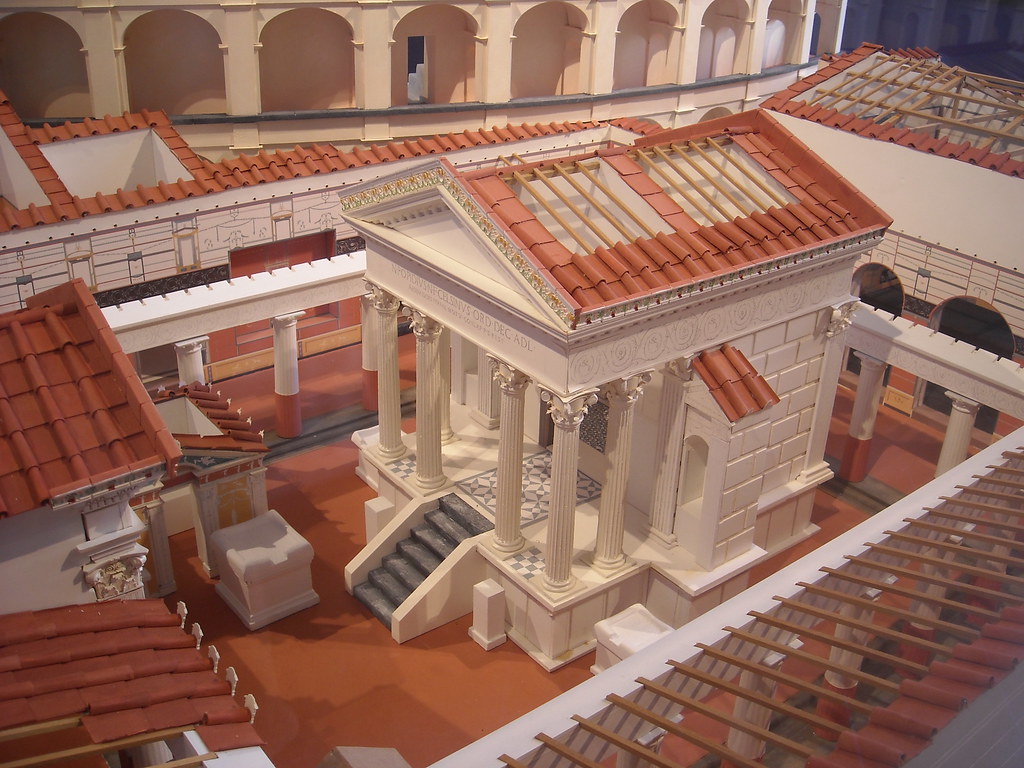
The Temple of Isis at Pompeii Foundet beginning 1st centu… Flickr
The Samnite Interlude (circa 424-290 BC) The Roman Pompeii (circa 290 BC - 62 AD) The Wrath of Vesuvius (62 - 79 AD) Reconstruction of Pompeii The History of Pompeii The Origins of Pompeii and its Etymology (circa 8th Century - 5th Century BC) Pompeii, Italy: Stone Stele with Oscan inscription. Credit: Monopthalmos (Flickr)
Forum, Pompeii. r/ancientrome
The Macellum of Pompeii was located on the Forum and as the provision market (or macellum) of Pompeii was one of the focal points of the ancient city. The building was constructed in several phases. When the earthquake of 62 AD destroyed large parts of Pompeii, the Macellum was also damaged. Archeological excavations in the modern era have revealed a building that had still not been fully.
How was it looks like mix reality reconstruction of the forum in
This article details the most recent activities of the Pompeii Forum Project. Recent field studies and completion of the analysis of context materials from excavations in 1997 and 2001 allow a detailed appraisal of the early history of the Pompeii Forum from the Samnite period onward. The results are radical.

79 AD Pompeii and the House of Sallust 3D Reconstruction Pompeii
Pompeii Forum is the center of religious, cultural and political life of the ancient Pompeii. It contained some of the most beautiful buildings in the city. The Forum of Pompeii was originally the central open space in the settlement. The city spread and grew in size.
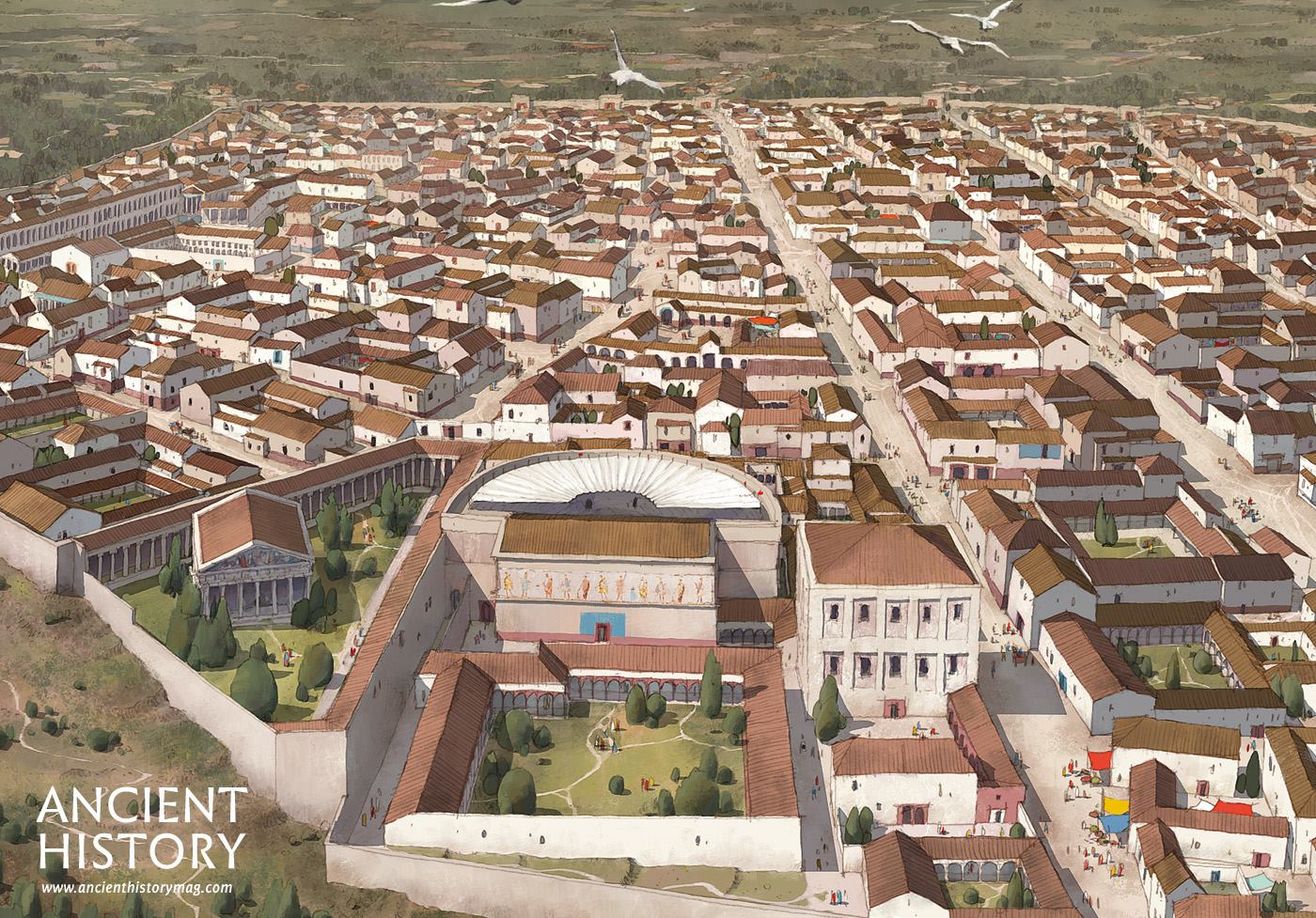
Recreation of Pompeii (Illustration) World History Encyclopedia
The Basilica is dated back to 130-120 BC and is one of the oldest examples of this type of building in the entire Roman world. It was excavated since the 19th century, when investigations in the Forum square area began. Date of excavation: 1806; 1813; 1820; 1928; 1942; 1950

Digital reconstruction of the Temple of Isis in Pompeii Time Machine
The Forum. The Forum of Pompeii was the main square of the ancient city of Pompeii buried by the eruption of Vesuvius. It represented the economic, political and religious centre of the country; within it there were religious and commercial civil services. The forum is one of the best preserved among the ancient Italian cities.